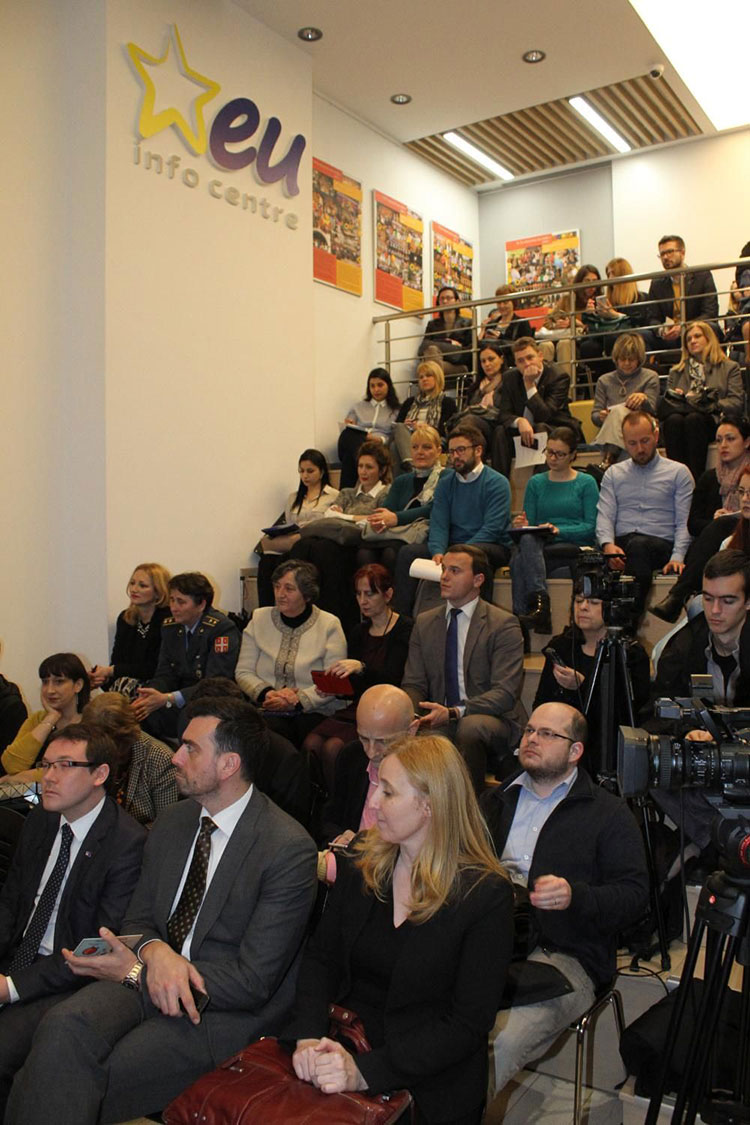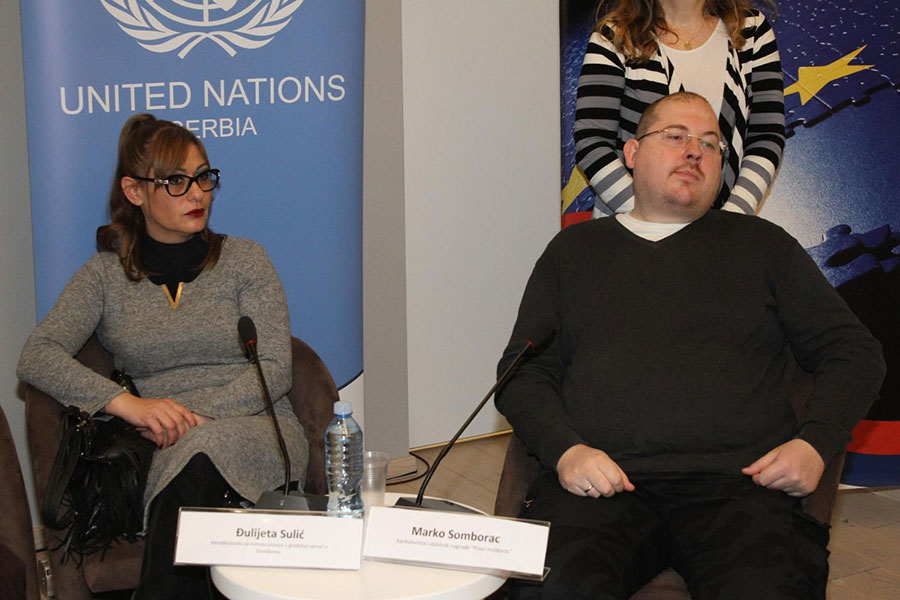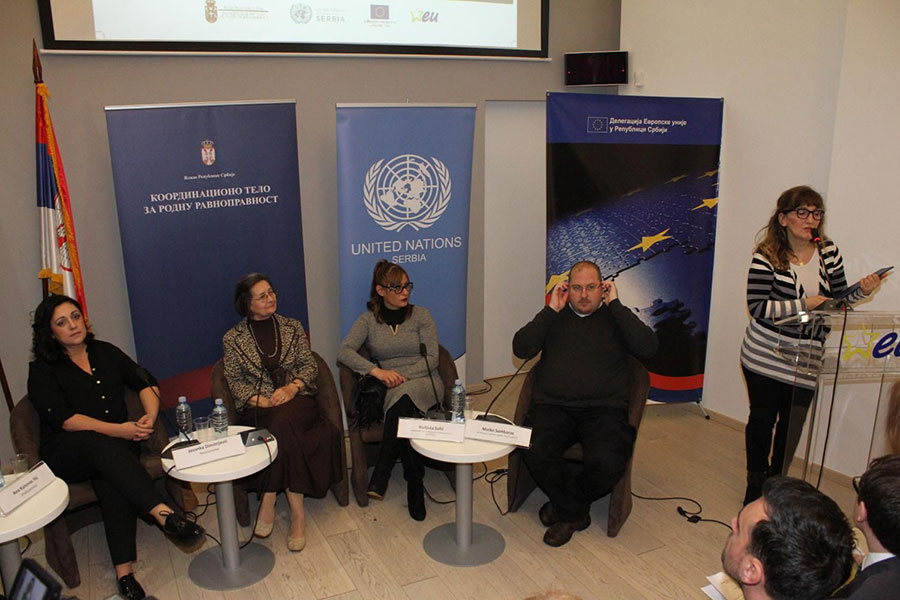Women in Serbia carry a double burden, they are still paid less than men and are “missing from the positions of power” concluded the panellists of the debate titled “Women at work: Double burden” organised by the EU Delegation to Serbia, the EU Info Centre and Team UN Serbia, in cooperation with the Coordinating Body for Gender Equality of the Government of Serbia, on the occasion of International Women’s Day.
The goal of the debate held at the EU Info Centre was to shed light on the traditional model, that is the widespread practice of women carrying a double burden of employment by working at the same time for money on their jobs and pro bono at home. Also, the debate served as an opportunity to hear success stories about the division of labour from everyday lives of both women and men. The discussion pointed to such a traditional model and to new forms of inequality faced by women.
The panellists said that women tend to work twice as much as men at home, that the improvements to their status are insignificant and that there is much room for improvement, adding that women remain underrepresented in the executive branch of power, ministerial positions and key levers of power.

FoNet
Advisor to the President of the Coordinating Body for Gender Equality Branka Draskovic said that women were not taking equal part in the creation of economic and development policy despite being educated and having capacity, needs and interests.
“Gender equality does not concern one particular law, certain strategy or one aspect of life. The issue of gender equality should be of concern of all women and men in Serbia. The Coordinating Body has for the first time managed to integrate this issue into every policy in Serbia,” Draskovic said.
She said that all surveys showed that men were occupying the positions of power and were in charge of money, whereas women were missing from such positions.
Head of UN Women Office Serbia Milana Rikanovic said that unpaid labour done by women indeed had the monetary value, the one we become aware of when buying those services, such as babysitting, in an open market.
“Policy creators should be aware of the fact that the time women spend doing unpaid labour at home is in fact their spare time or the time they would otherwise spend on their education or professional training,” she said.
“Surveys show that women spend twice as much as men doing chores, which amounts to 4 hours and 36 minutes a day,” Rikanovic said.
Head of Operations I at the EU Delegation to Serbia Nicolas Bizel said that 8 March served as a perfect opportunity to take stock of what women have accomplished so far in the fight for their rights.
“There is much work to be done and the EU is heavily engaged in the fight for gender equality and stands ready to support Serbia on that path,” he said.
Bizel quoted the former British Prime Minister Margaret Thatcher who said: “If you want something said, ask a man; if you want something done, ask a woman.”
The opening remarks were followed by a debate during which three women, each of them at a different level of education, pointed to possible avenues of overcoming the traditional model of carrying “the double burden” and shared their everyday experience: Ana Kunovac, an entrepreneur, Jovanka Dimitrijevic, a pensioner, and Djulijeta Sulic, coordinator for Roma issues at the Smederevo city administration.

FoNet
The fourth panellist was Marko Somborac, a cartoon artist, who a few years back won the Real Man Award, awarded by Centre 8 to human rights, equality and tolerance advocates.
Commenting on the remark made by one of the female panellists that one simply cannot expect a boy to play with a “kitchen and other girls’ toys,” Somborac argued the notion by saying that his son plays with both boy and girl toys.
Somborac said that “a more engaged fatherhood” was important for gender equality, adding that child upbringing was the most important job. “I would like to quote the European Commission on this: ‘There is room for improvement’,” he said.




